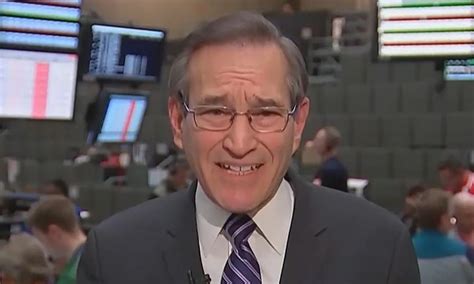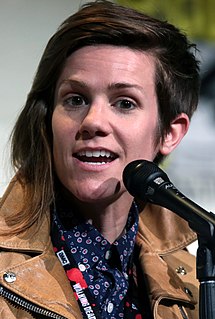A Quote by Rick Santelli
It's a philosophy that - 'We, the People' - it's about us, that if the Americans want to do something, they have the power to try to put leaders in place to carry out whatever their notions are.
Related Quotes
My personal philosophy is, talk about whatever you want on a show, but it better be good. And especially if it's something that challenges folks. You don't want to be on the side of power to demean a group that is at risk. Because that's propaganda. Whenever you're on the side of power, you're not making art. Art upends power.
When you start witnessing something without thought, there is no obstruction for absorbing the knowledge about that thing because there is no thought. It's complete absorption which takes place. And then it manifests. This is how the Divine Power works within us. So with our gravity, what we do is to touch that depth within us, which can carry the Divine Power and manifest.
What we also need to have a discussion on the philosophy of art: so we must ask what is it that we want in the first place? Is it just about saying and doing whatever you want, or is it about something more? We should let the artist be free, but we must also question how exactly he deals with freedom. Is it arts for elevation or arts for destruction? Is there dignity in the process?
Immigrants to America help us with the work they do. They challenge us with new ideas, and they give us perspective. This is still the nation that more people around the world want to come to than any place else. That has to tell us something about ourselves. If around the world this is the place people want to come to so much, maybe there's more here than many of us realize-and that many of us can take advantage of.
Power to the people' can only
be put into practice when the power exercised by social elites is
dissolved into the people. Each individual can then take control of
his daily life. If 'Power to the people' means nothing more than
power to the 'leaders' of the people, then the people remain an
undifferentiated, manipulatable mass, as powerless after the revolution as they were before. In the last analysis, the people can never
have power until they disappear as a 'people.
We will be whatever they need us to be. Call us emo's, liars, and cheaters...tell people how awful we are and how little talent we have...do whatever it takes to make themselves feel better because at the end of the day, we are strong, we can take it. We don't need their approval to justify our lives. Each and every one of us has a fire that burns inside us and they can try like hell to put out that flame but as long as in our minds we know who we are meant? to be, they don't stand a chance.
I think it's only in a crisis that Americans see other people. It has to be an American crisis, of course. If two countries fight that do not supply the Americans with some precious commodity, then the education of the public does not take place. But when the dictator falls, when the oil is threatened, then you turn on the television and they tell you where the country is, what the language is, how to pronounce the names of the leaders, what the religion is all about, and maybe you can cut out recipes in the newspaper of Persian dishes.
I can only tell you the kind of power I want, which is the power to persuade. But I do not want the power to tell other people what to do. Persuade assumes that the other person is going to make the decision. Especially as a writer and an activist, I want the power to put ideas and possibilities out there, but I understand that they will only work if they are freely chosen, so I don't want the power to dictate or to force the choice, ever.
When you coach and teach leadership, most people think about them. It's like you're the leader and how do you influence them. Clearly, leaders do take their followers, their flock, their enterprise, their business - whatever - hopefully to a better place. But I think the foundation of what makes really great leaders is they lead themselves, and they're conscious about knowing themselves and coaching and leading themselves in a very profound way. The simplest of us talk to ourselves. The question is, "Do we really lead ourselves?"

































